Sleep is important. The easiest way to see its value is to deprive yourself of it and to watch your skills and cognitive abilities erode. If I figured out how to sleep better, would I be able to supercharge my abilities to do anything? How could you measure it?
With the FitBit Alta you get some cool sleep data, specifically how much time you were Awake, REM, Light and Deep sleep. According to FitBit, it “your device tracks the beat-to-beat changes in your heart rate, known as heart rate variability (HRV), which fluctuate as you transition between light sleep, deep sleep, and REM sleep stages”. But…how accurate is it?
To find out I went to a sleep doctor and when he had me get a sleep study, I wore both my FitBit and my wife’s FitBit (on the other wrist). Here’s what it looked like: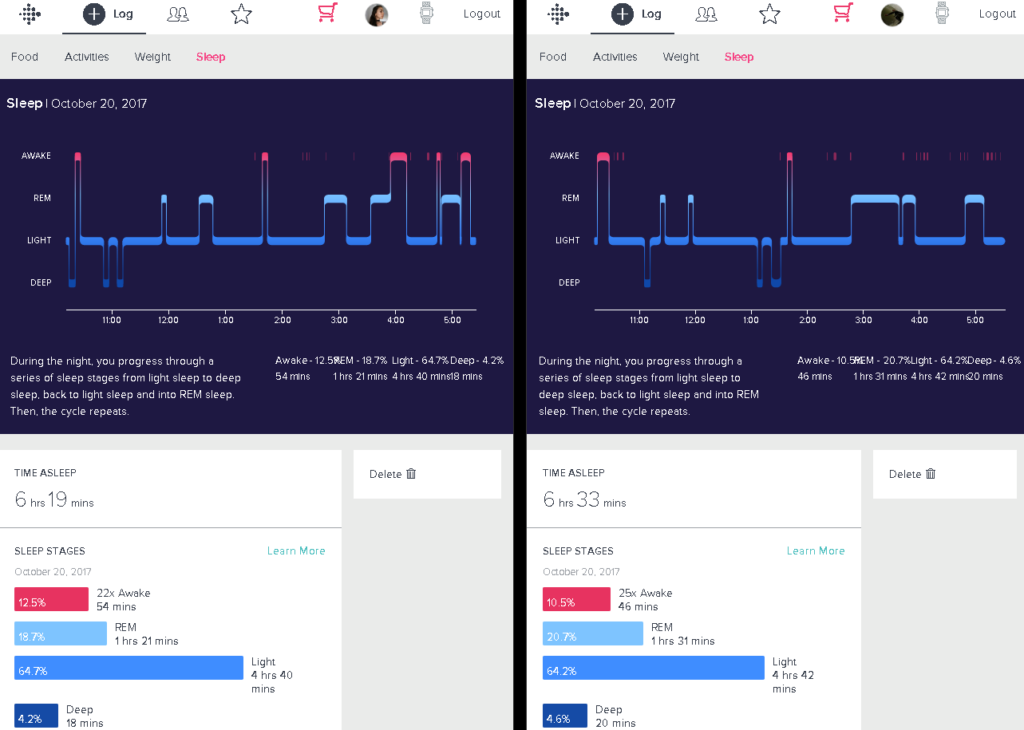
While the exact phases were not a direct match, the total amounts in the various phases were pretty close. Here’s the output of the sleep study from REM Diagnostics:
Page 1:
Page 2:
Page 3:
Page 4 (from Day 2):
Comparing my Sleep Study data to the data from both FitBits:
| Minutes in each stage | Average FitBit user | My FitBit average | My FitBit median | Sleep Study | FitBit 1 | FitBit 2 |
| Awake | 48 | 69 | 70 | 9 | 54 | 46 |
| REM | 95 | 78 | 79 | 66 | 81 | 91 |
| Light (N1 + N2) | 232 | 319 | 323 | 302 | 280 | 282 |
| Deep (N3) | 73 | 49 | 50 | 51 | 18 | 20 |
| REM + Deep | 168 | 127 | 129 | 117 | 99 | 111 |
| Total | 400 | 446 | 452 | 419 | 379 | 393 |
| Awake % | 12.0% | 15.6% | 15.4% | 2.1% | 14.2% | 11.7% |
| REM % | 23.9% | 17.4% | 17.6% | 15.8% | 21.4% | 23.2% |
| Light (N1 + N2) % | 58.0% | 71.6% | 71.4% | 72.1% | 73.9% | 71.8% |
| Deep (N3) % | 18.2% | 11.0% | 11.0% | 12.2% | 4.7% | 5.1% |
| REM + Deep % | 42.0% | 28.4% | 28.6% | 27.9% | 26.1% | 28.2% |
In short, the Fitbits were pretty consistent in their readings but not perfect. They were very accurate looking at Light (N1+N2) and if you combine REM and Deep (N3) relative to the polysomnography report. That said if you do not combine REM and Deep (N3) then the Fitbit sleep figures were not empirically accurate. I also do not get as much REM and Deep (N3) as the average Fitbit user.
In terms of improving my sleep, Arianna Huffinton’s sleep book The Sleep Revolution was interesting but really only addressed why sleep is important and didn’t offer much in terms of how to sleep better. Shawn Stevenson’s book Sleep Smarter was probably the best sleep audiobook I’ve found so far and was pretty actionable. Matthew Walker’s book, Why We Sleep was also really interesting, but pretty grim since most of us are doing serious damage to ourselves by not sleeping enough.

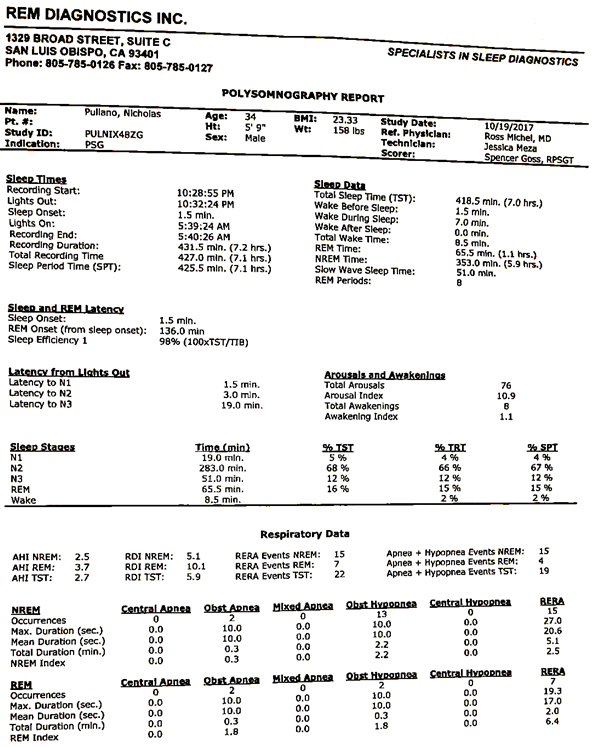
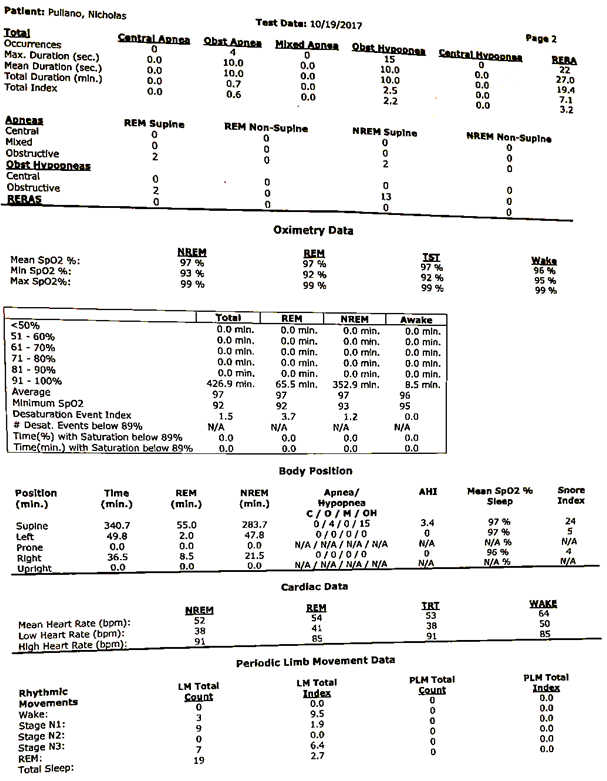
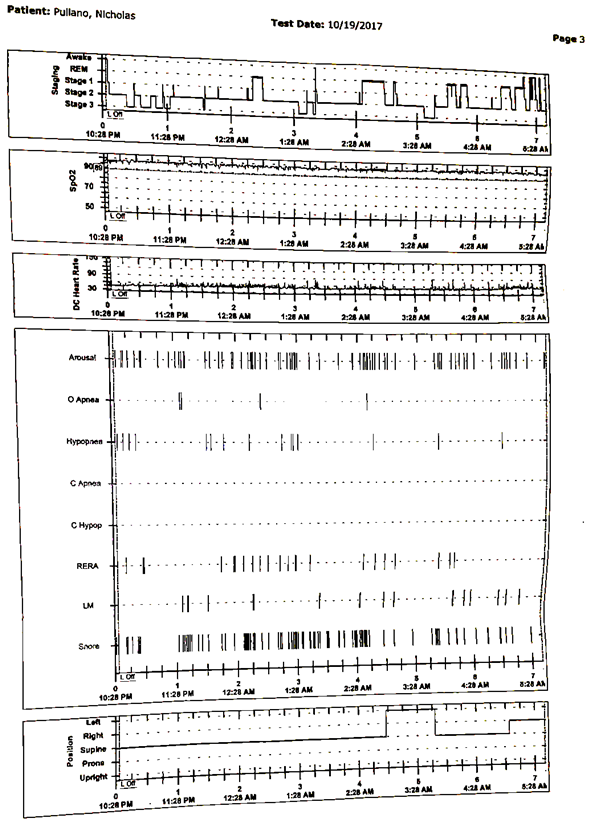
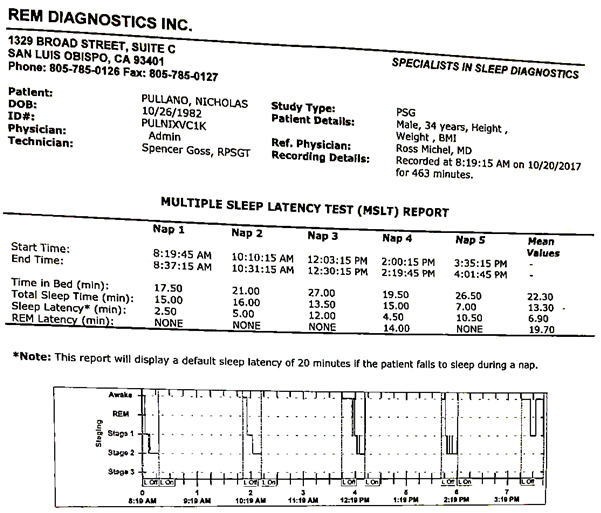
· Permalink
Go get more sleep, you likely would benefit from it.
· Permalink
well done. Data match with what I realized with my Charge 2.